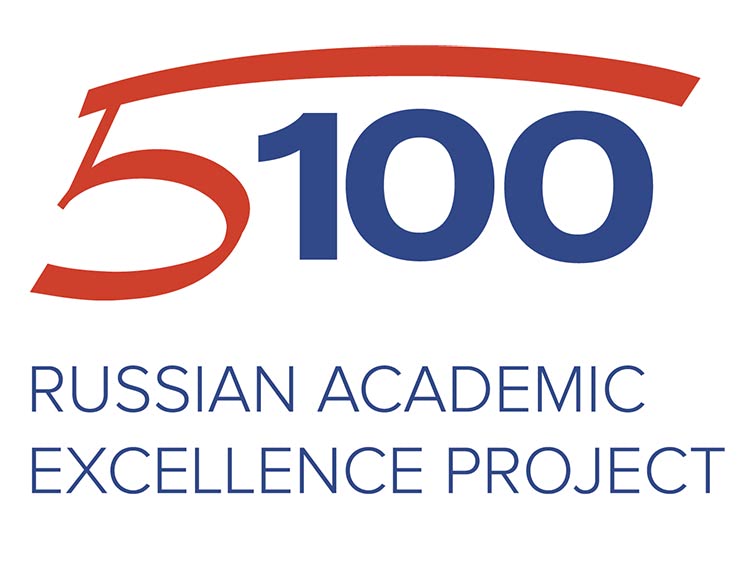Private Education Investment on the Rise in Russia

Looking at models for university-business interaction
Russia’s education industry is growing attractive to investors. In 2019, a new venture fund will be set up to support education startups. Big corporations have plans to endow department chairs and finance infrastructure at Russian universities, while Vnesheconombank (VEB) is due to launch a project to build college campuses. The Izvestiya newspaper together with the Project 5-100 press-office studied some cases of university-business cooperation in Russia to learn how investment in education works.
Investors Sit up and Take Notice
There has been a notable increase in the number of government and private institutions that look to provide support to Russia’s higher education sector and contribute to its development. Big corporations, such as Sberbank and VEB, are also showing strong engagement. Since 2013, the Russian government has been running Project 5-100 aimed at improving the competitive position of the country’s leading universities in the international academic marketplace. Special-purpose funds have been established to finance university projects.
The government has set out to ensure equal educational opportunities and create an environment conducive to innovation. VEB Deputy CEO Svetlana Yachevskaya believes that this goal cannot be achieved unless there is increased competition, which should involve private business.
For this reason, the bank is throwing its weight behind innovative financing mechanisms, such as public-private partnerships (PPPs), social bonds and impact financing. In conjunction with the Ministry Science and Higher Education, the bank is carrying out a project to build college campuses, which seeks to transform the educational environment and provide additional student accommodation. Svetlana Yachevskaya believes that by working together business and government can do much to make Russian education more competitive globally.
For years, Russia’s education sector was largely shunned by private investors. This was mostly due to restrictive regulations, a heavy government presence and a shortage of applicable business models, says Alexey Basov, Investment Director at Russian Venture Company (RVC) to the Izvestiya that endeavors to foster interaction between education and business.
Now, he notes, education has become a fast-growing industry, a key area of venture investment, marked by a rapid progress in digitalization and an emergence of new technologies. This change is stimulating broad-based demand for education services and encourages people to spend more on education.
RVC is in the process of setting up a R6.9 bln educational technology fund that will promote the best solutions in the field.
Universities Go Entrepreneurial
Universities have not been marking time, either. According to a spokesperson for Project 5-100, Russian higher education providers have stepped up cooperation with industry, as they strive to create an environment of entrepreneurship and innovation. A strong effort is being made to adapt both professional education and scientific research to the needs of modern business.
The Project 5-100 officer explains what advantages accrue to universities from collaboration with big business. It helps them hone their competencies, get access to industrial facilities to test new technologies and keep up to date with S&T trends.
Industrial partners, in their turn, use college-run labs and small innovation firms to conduct research into new products, South Ural State University Rector Alexander Shestakov points out.
Private investment is channeled into higher education through PPPs and special-purpose funds, the Project 5-100 spokesperson adds.
Training Would-Be Employees
Another incentive for a business to invest in higher education is that it can start training its future employees before they even graduate. Alexey Belyakov, Vice Rector for Innovations at Tomsk State University (TSU), Russian Academic Excellence Project participant, observes that companies go to universities both for new technologies and for would-be staff that should one day become a big asset to their business. They know that it takes twelve months of training to make a young employee fully productive. A company therefore stands to gain from endowing a college laboratory where students will perform tasks and acquire skills relevant to its business even as they do research for their term papers or theses.
It is not only a well-trained but a loyal workforce that such investors get, says Alexey Maleev, Vice Rector for Technology Entrepreneurship and International Programs at the Moscow Institute of Physics and Technology (MIPT). MIPT is pursuing numerous joint projects with Sberbank that has already helped it set up a banking IT department.
Alexey Maleev believes that by engaging in partnerships with universities investors can strengthen their employer brands, as young people will naturally remember their first workplace and industry experience best. Employees tend to stay longer with such companies.
Finally, investors in education and science should benefit from subsidies that the Russian government is actively promoting.
Project 5-100: Starting from 2013, Russia has been implementing Project 5-100, – a state support program for Russian universities. Its goal is to raise the standing of Russian higher education and have at least five member universities in the top-100 of three respected world rankings. Project 5-100 is enabling 21 Russian universities to move forward in terms of effectively strengthening their education and research, promoting innovations and R&D, facilitating international cooperation, streamlining administration, balancing the authority of the management and academics, nurturing a proactive academic environment, increasing internationalization, providing sufficient incentives for attracting the top professors from around the world and also for the existing faculty’s professional growth.











Responses